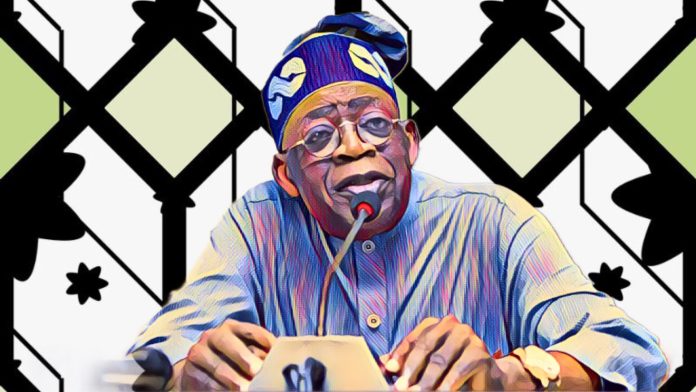KEY POINTS
- The current Nigerian president urges worldwide leaders to take swift measures against climate change through unified direction.
- The Energy Transition Plan of Nigeria targets net-zero emissions by 2060 while demanding financial support amounting to $410 billion.
- Nigeria fights global warming through the establishment of their Global Climate Change Investment Fund that drives both clean energy development and climate-smart projects.
During his recent address President Bola Tinubu urged world leaders to unite while showing bravery and maintaining dedicated efforts toward addressing escalating world climate conditions.
In his remarks at the virtual high-level dialogue President Tinubu stressed that global climate emergency needs leaders to display strong unified determination together with steadfast support.
President Tinubu declared that the worldwide climate emergency needs coordinated strong leadership from every nation. The president declared that Nigeria will build a new system where environmental action joins hands with economic development while traditional oppositions become obsolete.
The Nigerian government acknowledges this critical stage because climate action stands as a strategic developmental need rather than development constraining necessity according to President Tinubu.
Accelerating global climate ambition ahead of COP30
The conference which United Nations Secretary-General António Guterres and Brazilian President Luiz Inácio Lula da Silva hosted together sought to speed up climate commitment enhancement before Brazil hosts COP30.
Leading representatives from China and 16 additional countries joined regional bodies such as ASEAN and the African Union and small island states to participate in climate dialogue because climate action maintains its rapid progress.
Nigeria’s energy transition plan (ETP) and climate change goals
President Tinubu introduced the Nigeria Energy Transition Plan (ETP) as a revolutionary structured plan to achieve net-zero emissions targets by 2060. The implementation of the ETP requires $410 billion in financing to transform five essential sectors including power, cooking and transportation and oil, gas and industry by 2060.
The presidential administration is realigning regulatory systems and financial incentives as well as institutional tools to enable coordinated progress between energy availability and decarbonization and economic performance according to Tinubu. Through Mission 300 the Nigerian government took leadership responsibilities to deliver electricity to 300 million Africans before 2030.
Nigeria’s commitment to climate change and carbon market reform
The President shared how Nigeria works on clean energy expansion through the Dar es Salaam Declaration and National Energy Compact by establishing reform goals and investment opportunities with defined clean energy objectives. The development of Nigeria Carbon Market Activation Policy for March 2025 will produce up to $2.5 billion in carbon credits as well as related investments by 2030.
Nigeria is dedicated to updating its Nationally Determined Contributions (NDCs) according to UN Framework Convention on Climate Change (UNFCCC) standards and will submit an extensive revision by September 2025.
Climate-smart investment and multilateral cooperation
President Tinubu emphasized that Nigeria needs market reform to advance its climate program. Through his announcement President Tinubu outlined the creation of a Global Climate Change Investment Fund to merge public and private funding for massive clean energy solutions.
This investment fund will facilitate the support of vital national initiatives that include building green industrial facilities together with infrastructure for electric mobility while implementing regenerative farming and deploying mini-grids of renewable energy for community areas.
At the climate summit Tinubu showed appreciation for United Nations and Sustainable Energy for All (SEforALL) because he believes international collaboration remains vital to accomplish climate goals. The time has passed to wait for climate action since it must start right away according to us so we are ready to collaborate and deliver and to lead these efforts.



